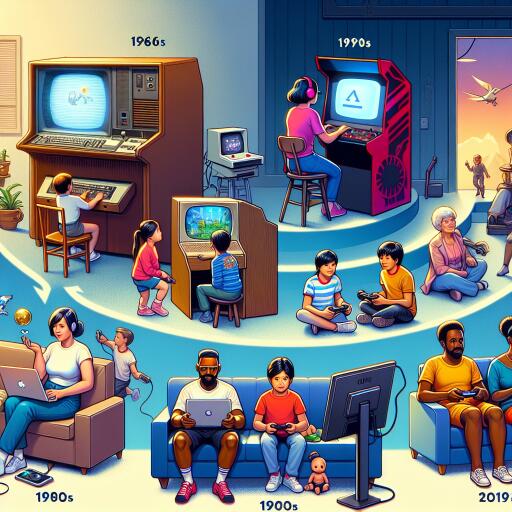The Evolution and Impact of Online Games
The realm of online gaming has evolved into a sprawling global phenomenon, engaging an expansive array of players worldwide. From casual mobile apps to intense multiplayer experiences and intricately designed MMORPGs, the landscape of online gaming is expansive and continuously progressing. This exploration details the growth, trends, and consequential impact of online gaming on society, technological advancement, and cultural transformation.
The genesis of online gaming traces back to the 1970s with pioneering games like Spasim and Maze War, which facilitated player interaction via early computer networks. Nonetheless, the real breakthrough occurred in the mid-1990s with the internet’s burgeoning presence, giving online games substantial momentum. Titles such as Doom and Warcraft allowed thrilling multi-player experiences through LAN and early internet connectivity, laying the groundwork for the vibrant online gaming environment we witness today.
The introduction of broadband internet in the 2000s paved the way for more seamless and expansive gaming experiences. Legendary titles like World of Warcraft (2004) and Counter-Strike (1999) became cultural icons, drawing in millions of enthusiasts worldwide. Online gaming transcended mere entertainment, fostering communities and virtual universes where players could create friendships, join teams, and find a sense of community.
The technological strides that have propelled online gaming are both intriguing and multifaceted. Key advancements have been made in areas such as internet infrastructure, game servers, and the burgeoning sphere of cloud gaming.
The cultural footprint of online gaming is profound. Its impact extends beyond entertainment, influencing social interactions, educational methods, and even the domain of professional sports.
The horizon of online gaming is bright and full of potential, with several innovative technologies and trends on the cusp of realization. Virtual reality (VR) and augmented reality (AR) promise to elevate the immersive nature of games, deepening player involvement. Additionally, breakthroughs in artificial intelligence (AI) stand to create more dynamic and interactive game environments. This could make non-playable characters (NPCs) exhibit enhanced realism and unpredictability.
Furthermore, the increasing focus on diversity and inclusion within game development holds the promise of affording players from various backgrounds the opportunity to see themselves depicted in the games they cherish.
In closing, online games have metamorphosed from simple diversions into a colossal industry that significantly influences how we connect, compete, and experience entertainment. As technology continues to advance and gaming communities expand, the domain of online gaming will undoubtedly continue to be a formidable presence in modern culture for the foreseeable future.








